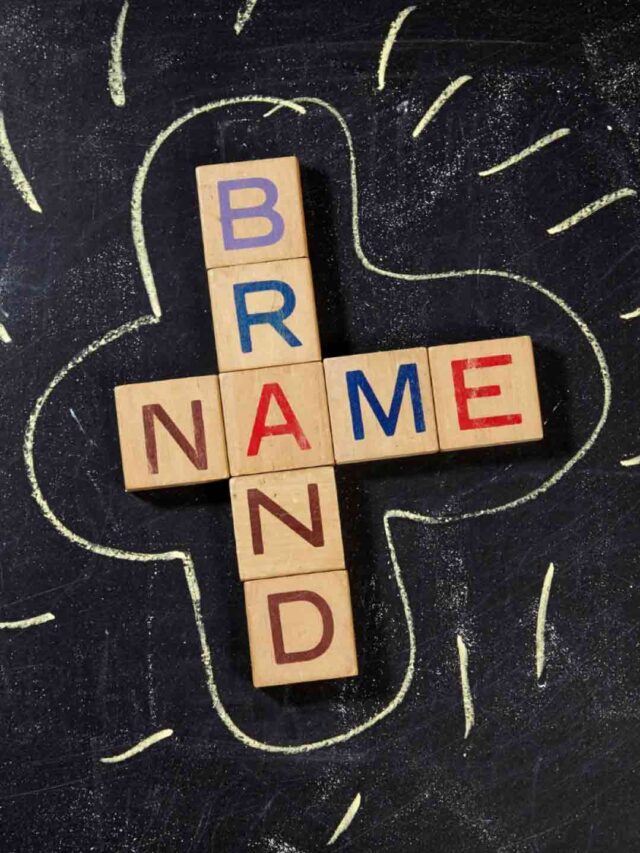What cannot be Registered as Trademark? Section 9 & 11 Of Trademark Act 1999
Introduction
In India, Trademarks are registered under the Trademarks Act, 1999. Also, some trademarks can’t be registered due to rules. These include common words, descriptive terms, offensive or misleading marks, and those too similar to existing trademarks. This article shall guide you to what cannot be registered under the Trademark criteria.
What is a Trademark?
A trademark is a unique symbol, word, phrase, or design that helps identify and distinguish a company’s products or services.
What is a Trademark Registration?
Trademark registration is the legal process of securing exclusive rights to a brand name, logo, or symbol, preventing others from using it without permission.
What Cannot Be Registered as Trademark in India?
Not everything can be registered as a trademark. Here are some things that cannot be used as a trademark in India:
1. Common or Generic Words
Words that are too common and used by everyone (e.g., “Milk” for dairy products).
Everyday words that don’t make a brand special.
2. Descriptive Words
Words that just describe the product (e.g., “Sweet” for chocolates or “Soft” for pillows).
A trademark should be unique, not just explain what the product is.
3. Misleading or Confusing Names
A name that gives a false impression (e.g., calling something “Organic” when it’s not organic).
A name that confuses people about what the product really is.
4. Religious Names or Symbols
Anything that hurts religious feelings cannot be registered (e.g., using the name of a god for a brand in a disrespectful way).
5. Offensive or Bad Words
Words or pictures that are rude, offensive, or inappropriate will not be allowed.
6. National Symbols and Flags
Things like the Indian flag, national emblem, government seals, or names of famous leaders cannot be used as trademarks.
International organization names like United Nations (UN) also cannot be registered.
7. Copies of Existing Trademarks
If your trademark looks or sounds too much like an already registered brand, it won’t be accepted.
For example, trying to register “Nkie” for shoes (which is too close to “Nike”).
We offer online brand registration services to help you secure your brand identity with ease. From trademark filing to brand protection, we ensure a smooth process to establish your brand online.
8. Well-Known Brands
Even if a famous brand is in a different industry, you cannot copy its name (e.g., you can’t use “McDonald’s” for a clothing brand).
9. Similar-Looking or Sounding Trademarks
Words that look or sound very close to an existing brand (e.g., “Pepsi” vs. “Pipsi”).
10. Common Names or Surnames
Using a very common name (e.g., “Sharma Electronics”) might not be allowed unless it is well-known.
11. Common Product Shapes
If a product’s shape is normal or necessary (like a round ball for a football), it can’t be trademarked.
The shape must be unique to be registered.
What does the law say under Sections 9 and 11 of the Trademarks Act, 1999, for refusal in India?
Section 9 : Absolute Grounds for Refusal
This section lists reasons why a trademark cannot be registered based on its own nature, regardless of other trademarks:
- Not Unique : If a trademark is too common and doesn’t help people recognize a specific brand, it won’t be registered.
- Descriptive Words : If a trademark simply describes the product (like “Sweet” for candy), it won’t be accepted.
- Commonly Used Words : If the word or symbol is commonly used in the industry, it can’t be registered as a trademark.
- Misleading : A trademark that gives a false idea about a product (e.g., “Organic” for a product that isn’t organic) will be rejected.
- Hurts Religious Sentiments : If a trademark offends the religious beliefs of any group, it won’t be allowed.
- Offensive or Immoral : Trademarks with bad words or inappropriate images won’t be registered.
- Government Symbols : If a trademark includes national emblems, flags, or names that are legally protected, it can’t be used.
Section 11 : Relative Grounds for Refusal
This section deals with conflicts with existing trademarks and possible confusion among customers:
- Too Similar to an Existing Trademark : If your trademark looks or sounds too much like another registered one, it won’t be accepted.
- Copying a Well-Known Brand : If your trademark is similar to a famous brand, even if it’s for different products, it may be rejected.
- Confusing Customers : If your trademark could make people think it’s related to another brand, it won’t be approved.
- Unfair Business Practices : If the trademark could be used to trick customers or damage another brand’s reputation, it won’t be registered.
The Difference
- Section 9 focuses on whether the trademark itself is suitable for registration.
- Section 11 looks at whether it might create confusion with existing trademarks.
Conclusion
Certain marks, such as generic terms, commonly used words, misleading marks, or those that go against public morality, cannot be registered. Descriptive phrases that only explain the product’s type or quality are also ineligible.
Suggested Read :
Trademark search in India
Advantages of Trademark Renewal
International Trademark Assignment
Types of Trademark Assignments
Trademark Renewal vs Trademark Restoration
1. What is the fee for Trademark Registration?
The trademark registration fee in India is ₹4,500 for individuals & startups and ₹9,000 for companies per class when filed online. Govt fees may vary.
2. What can be registered as a trademark?
Unique words, logos, symbols, or designs that distinguish a brand.
3. Can I register a trademark myself?
Yes, you can apply online, but legal help ensures a smooth process.
4. How many years is trademark protected for?
A trademark is protected for 10 years and can be renewed.
5. What is the difference between TM and R trademark?
TM means applied but not registered, ® means officially registered.











February 26, 2026 By Steffy A
Top 10 CA Firms in India- 2026 updated list Introduction Many Indian businesses suffer tax penalties due to the strict tax deadlines and the many confusing tax laws. As a business owner in India, the best option is to find […]
January 30, 2026 By Steffy A
How to Trademark a Brand Name in the USA ? Introduction Many founders believe that registering a company in the USA automatically protects their brand name. Unfortunately, that is not true. A brand name is protected only when it is […]
January 30, 2026 By Steffy A
USPTO Trademark Cost registration Guide by Ebizfiling Introduction Understanding the USPTO trademark cost is important before applying for trademark protection in the United States. Many applicants assume trademark registration involves only one flat fee, but that is not true. […]